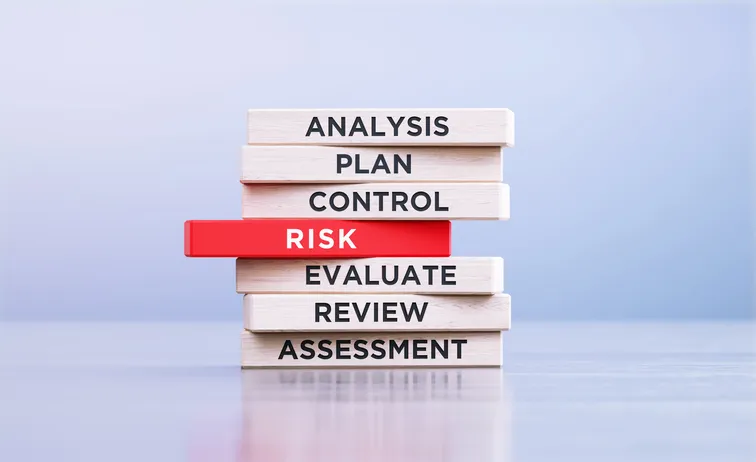The credit risk certification (CRC) is a professional credential that is offered by the Risk Management Association (RMA). Financial advisors obtain this certification to demonstrate their proficiency in assessing and managing credit risk. This certification may be of interest to you if you want to work more with businesses or business owners.
SmartAsset’s Advisor Marketing Platform can help you add new clients at your desired pace. Sign up for a free demo today.
Requirements to Earn the CRC
Eligibility for a CRC depends on a combination of educational and professional prerequisites. These requirements include:
- At least three years of credit risk experience as a banking professional and should be familiar with intermediate-level credit risk topics.
- Passing the CRC exam.
The credit risk certification (CRC) exam has 120 scored multiple-choice questions. The examination is designed to assess a candidate’s proficiency in areas such as risk identification, credit policy development, loan structuring and compliance with regulatory standards.
These cover seven specific topic areas that focus on:
- Evaluating client industry, markets, and competitors
- Assessing management’s ability to formulate and execute business and financial strategies
- Conducting accurate and timely financial assessments of clients and other credit sponsors
- Analyzing the strength and quality of client/sponsor cash flow
- Evaluating collateral values and conducting periodic inspections
- Identifying repayment sources and structuring credit exposures appropriately
- Understanding problem loans and taking appropriate actions in response
To assist in this preparation, the Risk Management Association provides a suite of resources. These resources are a combination of study guides, practice tests and instructor-led workshops.

Client Acquisition Simplified: For RIAs
- Ideal for RIAs looking to scale.
- Validated referrals to help build your pipeline efficiently.
- Save time + optimize your close rate with high-touch, pre-built campaigns.

CFP®, CEO
Joe Anderson
Pure Financial Advisors
We have seen a remarkable return on investment and comparatively low client acquisition costs even as we’ve multiplied our spend over the years.
Pure Financial Advisors reports $1B in new AUM from SmartAsset investor referrals.
Reasons to Earn a CRC

With a CRC, you will potentially be prepared for positions involving detailed risk assessment, mitigation strategies and even leadership within the risk management department. These responsibilities require a deep understanding of credit risk and the ability to foresee and navigate potential financial pitfalls.
Additionally, if you’re a financial advisor, a CRC could demonstrate to target business clients that you can help them specifically with managing risk. This skill set is particularly valuable to individuals and businesses that focus on debt as a way to grow their financial outlook.
Become a Top Financial Advisor
Referrals and market gains aren't enough. Grow with the all-in-one advisor marketing platform.

Other Certifications Financial Advisors Should Consider
There are a variety of certifications available that could help you develop and demonstrate expertise in a financial focus, depending on what you’re trying to accomplish. Here are three common certifications that you may want to consider instead of a CRC (or in addition to one):
- Certified Financial Planner (CFP): This certification is recognized worldwide and focuses on comprehensive financial planning across multiple domains such as tax, insurance and estate planning. Holding a CFP certification signals a deep commitment to providing ethical and thorough financial guidance. The pathway to earning a CFP includes meeting education requirements, passing a rigorous examination and adhering to a code of ethics.
- Chartered Financial Analyst (CFA): This certification indicates a robust understanding of complex investment analysis and portfolio management, along with adherence to ethical standards. It is particularly sought after by those aiming to specialize in investment management or analysis. To obtain the CFA designation, candidates must pass a series of exams and demonstrate relevant work experience.
- Certified Investment Management Analyst (CIMA): Tailored towards those who excel in investment consulting and portfolio construction, this certification emphasizes asset allocation, due diligence and risk measurement. The CIMA certification process involves education, an examination and ongoing professional development.
While these certifications can certainly enhance a financial advisor’s credentials and may open doors to new client opportunities, they are one of many factors contributing to a financial advisor’s success and reputation and do not guarantee career success or client satisfaction on their own.
Obtaining a certification is a significant commitment and should be approached with an understanding of the time, dedication and prerequisites involved.
Bottom Line

The credit risk certification (CRC) credential is earned by many financial risk managers who want to demonstrate their expertise in assessing credit risk. It could enable them to offer informed guidance to clients on managing credit exposures and making sound investment decisions. Generally, candidates are banking professionals with a minimum of three years in credit risk experience.
Tips for Growing Clients
- Find ways to grow your business. Using an online lead generation service like SmartAdvisor can help you connect with investors who are ready to take the next step and work with a professional advisor. SmartAsset AMP (Advisor Marketing Platform) is our holistic marketing service financial advisors can use for client lead generation and automated marketing. Sign up for a free demo to explore how SmartAsset AMP can help you expand your practice’s marketing operation. Get started today.
- Increase your visibility online. When people need a financial advisor, they typically go to one of two places: friends and family or an online search engine. If you haven’t searched for yourself, take time to do so and see what comes up. If you can’t find your firm, consider implementing an SEO strategy to help market yourself to more clients.
Photo credit: ©iStock.com/MicroStockHub, ©iStock.com/Daniel Balakov, ©iStock.com/supersize
